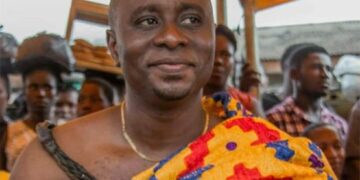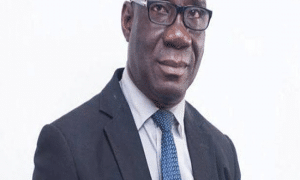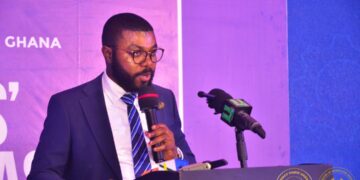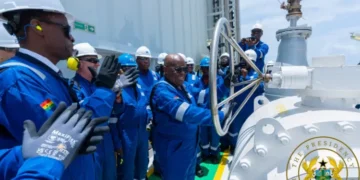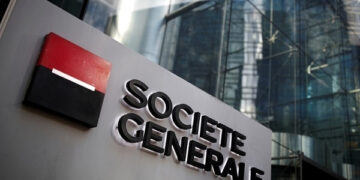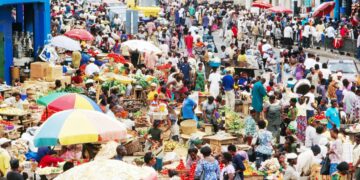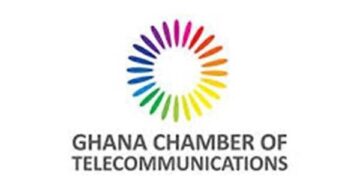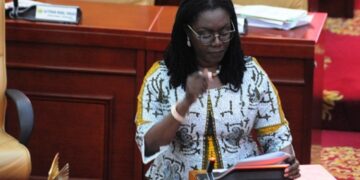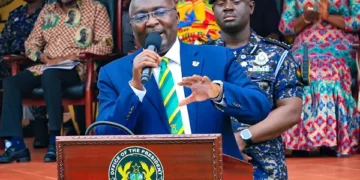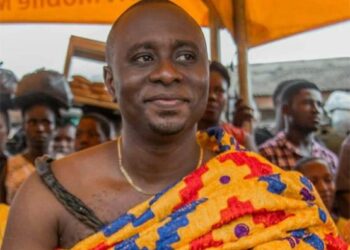The International Monetary Fund (IMF) has assured Ghanaians that it will work with the government to restore macroeconomic stability, stimulate growth, and provide much-needed relief.
Prior to the staff team’s visit to Accra, the Fund’s mission chief for Ghana, Stéphane Roudet, stated that “the IMF remains fully committed to helping Ghana restore macroeconomic stability, bring relief to Ghanaians in this time of crisis, and lay the foundation for more inclusive growth.”
The Fund said the team will be in Accra from December 1 to 13 to continue discussions with Ghanaian economic managers about the country’s post-COVID economic growth strategy and associated policies and reforms that could be supported by a new IMF lending arrangement.
During the visit, IMF staff will also meet with other stakeholders.
“Our objective for this visit is to make further progress toward reaching agreement on policies and reforms that could be supported by an IMF lending arrangement,” the statement said.
Mr Roudet recalled that his team had had fruitful discussions with Ghanaian authorities in recent months and that they were looking forward to further engagement in Accra.
According to information on Ghana on the IMF’s website, Ghana’s fiscal and debt vulnerabilities worsened rapidly in the face of an increasingly challenging external environment.
Ghana’s public debt increased significantly during the COVID-19 pandemic. At the same time, investors viewed the government’s efforts to maintain debt sustainability as insufficient, resulting in credit rating downgrades, the exit of non-resident investors from the domestic bond market, and, ultimately, Ghana’s loss of access to international capital markets.
These negative developments, exacerbated by price and supply-chain shocks from the Ukraine war, have resulted in a significant exchange rate depreciation, a surge in inflation (40.4 percent year on year in October), and a drain on foreign exchange reserves. In light of this, the government approached the IMF for assistance in early summer. Since then, discussions between IMF staff and Ghanaian authorities have been ongoing.
An IMF-supported program would assist Ghana in implementing policies that restore macroeconomic stability and debt sustainability while protecting the most vulnerable segments of the country’s population. It would contribute to the creation of conditions for inclusive and sustainable growth as well as job creation. A similar program would also help to strengthen policy credibility, relieve exchange rate pressures, and act as a catalyst for additional sources of financing.
The Fund continues to discuss with Ghanaian authorities the type of IMF facility that would best meet Ghana’s needs.
“The Fund’s various lending instruments are tailored to different types of balance of payments needs and a member country’s specific circumstances,” according to the information.
The previous agreement with Ghana was a three-year Extended Credit Facility (ECF) that was extended until April 2019.
Because negotiations are still ongoing, the Fund has refrained from commenting on the final form of the latest financing program.
“The level of access (credit amount) and the final program design will be decided by the IMF Executive Board,” the fund stated.
According to the Bretton Woods Institution, Ghana’s economic program, which would be supported by IMF financing, aims to restore macroeconomic stability and ensure debt sustainability, support the credibility of government policies, restore confidence in the central bank’s ability to manage inflation, and rebuild foreign exchange reserve buffers to make the economy more resilient to shocks.
As part of responses to what the objectives of an IMF programme with Ghana will be the Fund stated that “Specifically, in the fiscal sector, an important policy objective would be to increase revenues, critical for debt sustainability while safeguarding spending on health, education, and social protections.”


